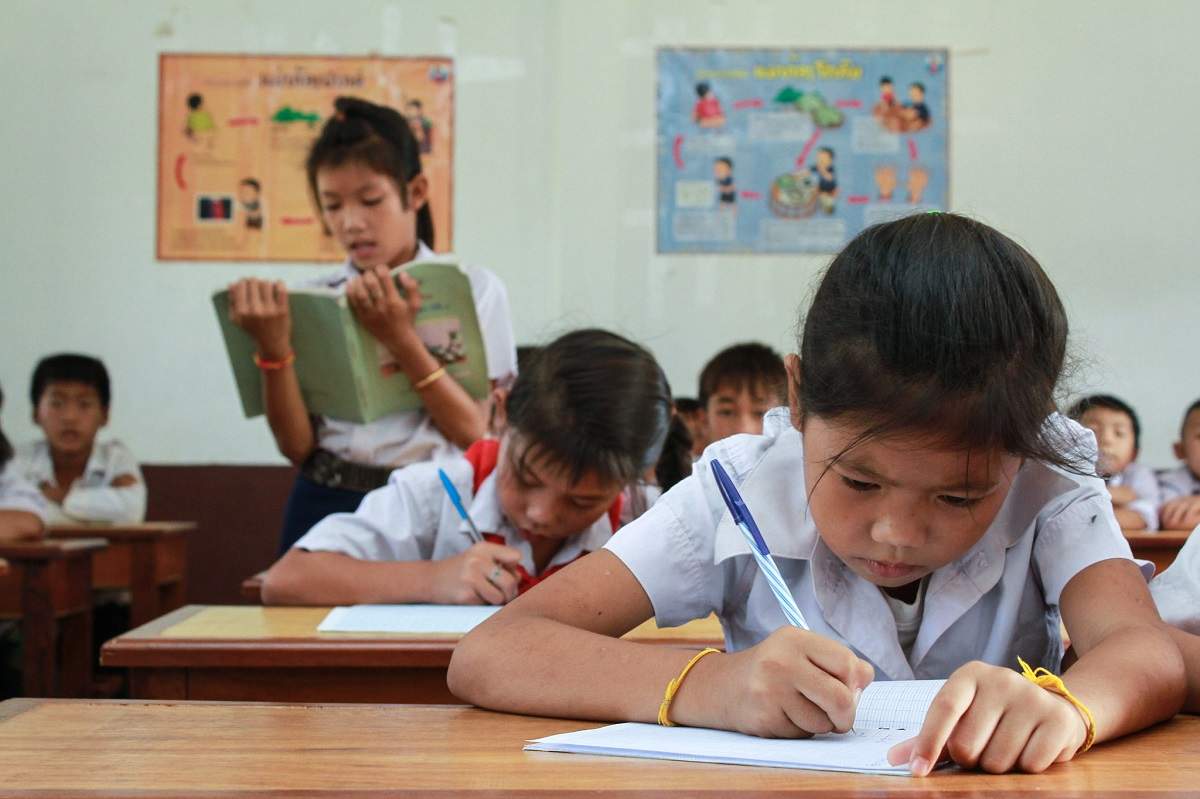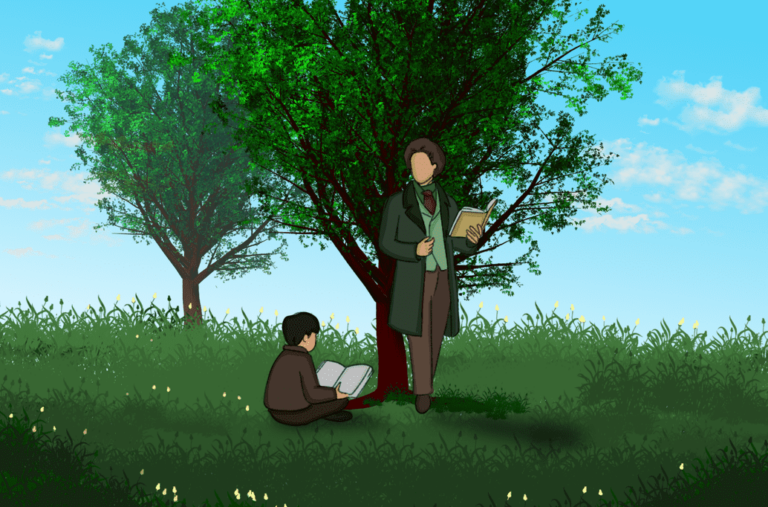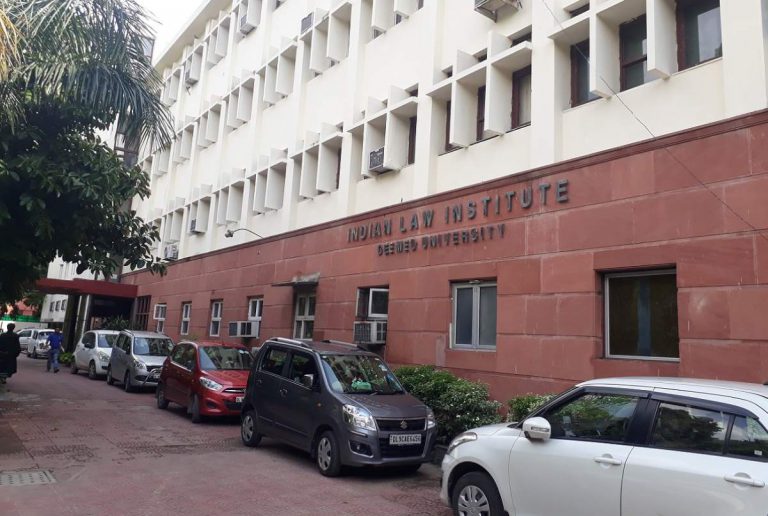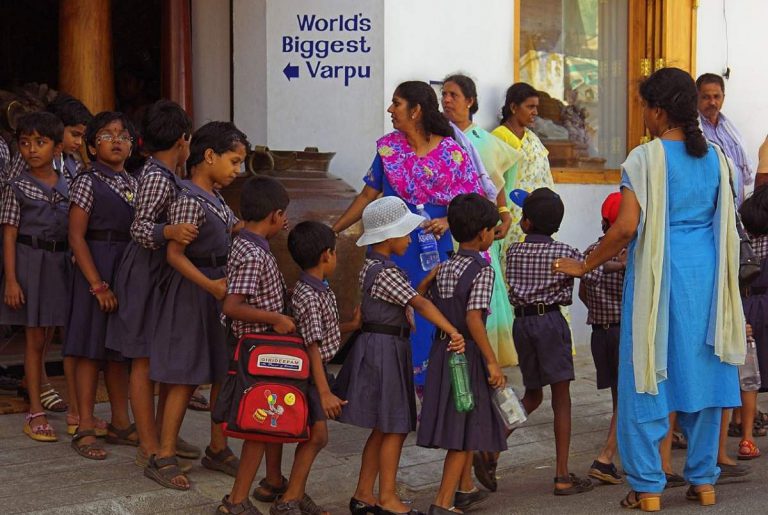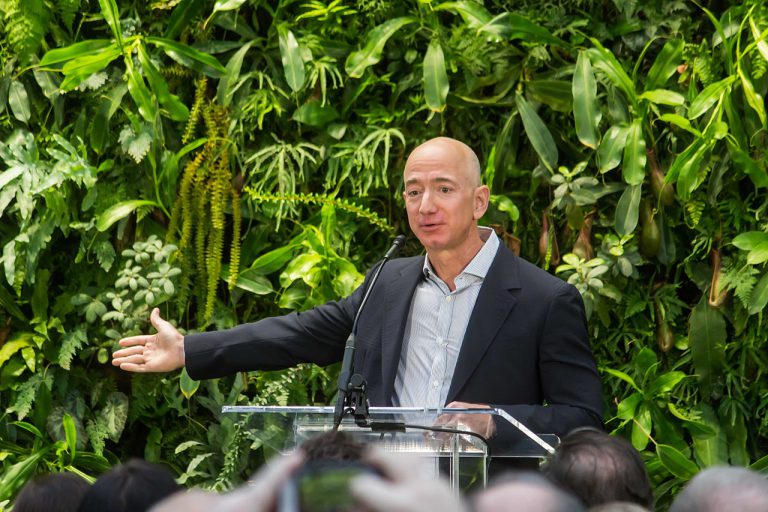Humanistic education – The Gandhian philosophy
Simran Massey holds a Bachelor’s in Economics (Honours) from St. Stephen’s College, Delhi (2015-2018) and a Master’s in Public Policy (MPP 2018-2020) from St. Xavier’s College, Bombay. She is currently pursuing MSc. International Social and Public Policy (Development) at the London School of Economics (2021-2022) and interning at the House of Commons, UK Parliament.
“The real difficulty is that people have no idea of what education truly is. We assess the value of education in the same manner as we assess the value of land or of shares in the stock-exchange market. We want to provide only such education as would enable the student to earn more. We hardly give any thought to the improvement of the character of the educated. The girls, we say, do not have to earn; so why should they be educated? As long as such ideas persist, there is no hope of our ever knowing the true value of education”.
M. K. Gandhi (True Education on the NCTE site) [1]
Modern science, with all the gains, that it has brought the world, is often thought to be humanity’s greatest accomplishment. In Mohandas Karamchand Gandhi’s view, however, the proponents of these claims have never really looked at what is happening to the people in those societies that have made the most progress.
Today, the world, developing as well as developed, is facing not one meltdown but many simultaneous meltdowns: financial, nuclear, ecological degradation, human rights violation, huge economic inequality, and disparity. At the same time, consumerism and materialism have destroyed the very fabric of our society. The political, business, and banking scandals have led to a total lack of trust.
In short, as the world seems to be on the edge of catastrophe, we are fearfully beginning to wonder, What on earth is to be done?. Nevertheless, our conscience is telling us, now more than ever, that something is amiss. A new era is struggling to unfold. Transitioning to a sustainable and just economic system is the ultimate challenge of the 21st century.
We all have often heard the phrase- “You cannot educate the masses” by Sylvia Pankhurst. [2] A sort of cruel profanity against the human mind is contained in those words. Yet, the highest possible harmonious development of human beings is secured rightly through the means of quality education, which is the foremost aim to maintain the economic order of society.
According to Karl Marx, the end of socialism is “an association wherein the free development of each is the condition of the free development of all” [3]. Indeed, education is truly a ‘social process’ since it is determined by the social conditions under which you educate, by the intervention direct or indirect, by means of schools. Thus, it is imperative to rescue education from the undue influence of the ruling class.
Ideology and Education
Not only does education reproduce the inequality inherent in the capitalist system, but it also represents the ideology of the ruling classes and prevents the working classes from understanding their real and ‘subordinate’ status in society. Often, this is accomplished under the garb of ‘meritocracy.’ Thus, while delving deeper into the intersection of Ideology and Education, it is imperative to think about caste and gender along with class discrimination.
In the book written by Brazilian educator Paulo Freire, ‘Pedagogy of the Oppressed,’ he argued how critical consciousness might lead to ‘destructive fanaticism’ or to a ‘sensation of total collapse’ of their world [4]. There is a fear of freedom; however, people must begin with the recognition that they were indeed the victims of injustice and critically recognise the causes of oppression.
The oppressed have discovered that without freedom, they cannot exist authentically. Yet, although they desire authentic existence, they fear it. They are, at one and the same time, themselves and the oppressor whose consciousness they have internalized. Therefore, in that sense, the pedagogy of the oppressed is forged with and not for the oppressed. Then, one ought to ask the question- What should be done? The need of the hour is to incorporate ‘co-intentional education,’ where both the teachers and students act together to unravel the objective reality and re-create knowledge (problem-posing education).
At the intersection of people’s economic, intellectual, aesthetic, social, and spiritual life, education needs to be holistic in nature. Hence, educational institutions should not only strive to generate positive externalities for all intellectuals but also play a comprehensive role in the economic life of the nation. Gandhiji, in particular, emphasised a lot on the economic aspects of educational practice. The idea of ‘basic education for all’ in Nai Talim (1938) conceptualised education as “continuity of existence”- integration of education into the human environment. [5]
It is pertinent to view our social life as enriched through education and not disrupted through an undue emphasis on individualism. Basic education was a component of Gandhi’s constructive program. According to him, the colonial system of education suffered majorly from three problems. Firstly, it was based upon foreign culture to the almost entire exclusion of indigenous culture. This leads us to the second problem of ignoring the culture of the heart and the hand, and confining itself simply to the head! Lastly, according to Gandhiji, real education was impossible through a foreign medium.
In 1938, Gandhi wrote that ‘Nai Talim’ would fulfill three purposes: make education self-supporting, train the bodies of the children as well as their minds and finally pave the way for a complete boycott of foreign yarn and cloth [6]. The children, thus equipped, would become self-reliant and independent. With respect to the medium of education,- Gandhi believed that English education was a curse for India as it produced a ‘race of translators.’ Thus, during the Non-Cooperation Movement of 1921, he called for a boycott of the colonial system of education.
Humanistic Education: ‘From Russia, With Love’
Leo Tolstoy was one of the founders of the humanistic theory of education in Russia and introduced the principle of natural conformity as a fundamental concept in the system of free education [7]. Throughout Tolstoy’s long involvement in education, he argued that ‘freedom’ was paramount as part of the pedagogical process. This highlights the importance of achieving equality of all social classes in order to liberate people from the fetters of history.
It is not by mere chance that the names of Leo Tolstoy and Mahatma Gandhi are so often linked together almost as a matter of course. In 1904, it is well-known that during Gandhi’s stay in South Africa, he founded the ‘Tolstoy Farm’ at Phoenix in Natal. If one compares Tolstoy’s teaching with that of Gandhi, one is certainly struck by the similarity and not infrequently by the identity of their views and ideas. Both made the ‘law of love’ and ‘non-violence’ the very kernel of their moral philosophy and teachings.
The common themes of how ‘love’ and ‘non-violence’ can transcend political and cultural barriers are becoming even more relevant today since global issues, such as climate change and dependence on natural resources, dominate headlines. It is also a wry reminder, especially among those who are renowned for their wealth and lavish lifestyles, to return to basics and eschew worldly possessions.
Revolution of Ideas: Influence of Tolstoy on Gandhi
Gandhi was greatly influenced by the Russian social and religious reformer, Leo Tolstoy, and even declared him as the ‘teacher of mankind,’ whose “solitary voice for peace was crying out in the wilderness.” In Tolstoy’s ‘The Kingdom of God Is Within You,’ Gandhi found three qualities, namely- original thinking, profound morality, and truthfulness, which he sought in religion. This book left an abiding impression on Gandhi and also provided him with the great insight that the kingdom of God is not something outside us, but it is within us. [8]
Gandhi adopted the ethical doctrines of the love of one’s neighbour, passion for truth, and non-resistance to evil, found in Tolstoy’s book, to mould his concept of ‘Satyagraha’ [9]. Thus, the Gandhian ideal of Sarvodaya comes very close to ‘Tolstoyan anarchism.’ Within the realm of philosophical ideals, a stateless society is marked by voluntary cooperation.
Leo Tolstoy was interested in truth, not pedantry. He believed that the curriculum must be based on the pursuit of the truth. Moreover, he believed that this pursuit should be in the form of a free exploration by pupils themselves and not an imposition of someone else’s idea of truth. The epistemic uncertainty of the human condition was something Tolstoy wished to bring to the classroom and use it as a pedagogical prompt. Education should be an investigation of what it means to be human and to live in the world. However, these truths of life should be communicated by the spirit of investigation and not as exposition.
Along with the importance of continuing experimentation in education, Tolstoy was also astutely aware of the importance of the human relationship between teachers and their students. According to him, the study of education is best conceived as “the study of the conditions in which the tendencies of the student and teacher come together into one aim.” Thus, Tolstoy’s view that what is really needed is dialogue and consultation with learners bring to light some timeless pedagogical values that are relevant for educators today.
Like his fellow social thinker and philosopher John Ruskin, Gandhi considered ‘man’ to be the most important to bring about a peaceful and harmonious society. According to him, “Man is neither mere intellect, nor the gross animal body, nor the heart or soul alone. A proper and harmonious combination of all the three is required for the making of the whole man and constitutes the true economics of education”. Therefore, the individual is the one supreme consideration.
In today’s globalized world, technical, technological, and professional training is primarily job and profession-specific. Education, however, is more ‘fundamental’ in nature. It does not mean merely obtaining various Bachelor’s and Master’s degrees, certificates, and diplomas. On the contrary, the aim must be to prepare a man and woman for life truly human in nature – full of an independent, interdependent, self-sufficient, fearless, mutually cooperating, and highly cultured existence with a deep sense of social commitment and urge for public welfare.
What is the relationship between the rising expectations due to emerging globalisation and the Gandhian and Tolstoyan philosophies of education? Gandhiji propounded his views on education in the following words: “Education for a just social order.” The ultimate objective of the new education is not only a balanced and harmonious individual but also a balanced and harmonious society- a just social order in which there is no unnatural dividing line between the haves and have-nots and everybody is assured of a living wage and right to freedom.
Gandhian Views on Education: Relevant but still Ignored!
Mahatma Gandhi wrote extensively on the environment and even practiced a lifestyle wherein compassion towards the environment was essential. He propounded the ‘Doctrine of Trusteeship,’ which places the onus on us- the present generation- to ensure that our coming generations inherit a clean planet. This calls for a paradigm shift in our thinking towards ‘sustainable consumption’ so that the world does not face a resource crunch.
Rather than adopting the flawed framework of using Gross Domestic Product, Jeffrey Sachs, author of ‘The Age of Sustainable Development’ [10], also promoted a process for measuring economic success according to broad-based happiness. For instance, Bhutan’s Gross National Happiness (GNH) index measures human well-being, which was influenced by Amartya Sen’s capability approach [11].
Amartya Sen aptly highlighted how it’s imperative to have a sound social infrastructure in the education sector. Well, he is correct since no nation has grown out of ‘poverty’ to ‘prosperity’ without taking care of the basic needs of its people. Indubitably, long-term development flourished in open societies, which gave their citizens the right to inquire into anything, speak freely, and stand up for their rights. In order to achieve sustainable growth, there is an urgent need for an integrated and intersectional approach to education that gives equal importance to the economic, social, cultural, and civic dimensions of learning.
Needless to say, without openness and liberal values, long-term development is doomed. Ernst Schumacher argued that ‘material aid’ is an inappropriate response to the problems of the Global South. Instead, he considered knowledge production and transmission to be the most relevant ‘gifts’ outsiders can offer. Development, he stated, “cannot be ordered, bought, comprehensively planned … it requires a process of evolution”. In other words, development is not solely the role of an economist; instead, it must involve the entire population.
“Perhaps we cannot raise the winds. But each of us can put up the sail so that when the wind comes, we can catch it.” – E. F. Schumacher [12]
Schumacher, likewise, warned us that a society that views nature purely through the lens of exploitation ruins any chance of long-term survival! By contrast, he argued that societies should aim towards the threefold ideal of health, beauty, and permanence, which could be taken as an allusion to sustainability. Without this goal, economic development becomes oxymoronic!
Education not only moulds the new generation but also reflects a society’s fundamental assumptions about itself and the individuals who compose it. Therefore, ‘rethinking education’ through discussion would emphasise the need to go beyond a strictly utilitarian vision and reform the human capital approach.
References
[1] Burke, Barry. “Mahatma Gandhi on education”, The Encyclopaedia of Informal Education, 2000, https://infed.org/mahatma-gandhi-on-education/
[2] Pankhurst, Sylvia. “Education of the Masses” Dreadnought Pamphlet No. 1, 1918, https://www.marxists.org/archive/pankhurst-sylvia/1918/education.htm
[3] Marx, Karl. “Theses on Feuerbach”, 1845
[4] Freire, Paulo. ‘Pedagogy of the Oppressed’, 1968, https://commons.princeton.edu/inclusivepedagogy/wp-content/uploads/sites/17/2016/07/freire_pedagogy_of_the_oppresed_ch2-3.pdf
[5], [6] Gandhi, M. K. “Nai Talim”, Hind Swaaraj, Navaneet Prakashan, 1938, https://www.mkgandhi.org/hindswaraj/hindswaraj.htm
[7] Tolstoy, Leo. “Tolstoy on Education”, p. 111, University of Chicago Press, 1968, https://www.worldcat.org/title/introduction-to-tolstoys-writings/oclc/229025
[8] Tolstoy, Leo. “The Kingdom of God Is within You”, 1893, https://theanarchistlibrary.org/library/leo-tolstoy-the-kingdom-of-god-is-within-you.pdf
[9] Gandhi, M. K. “Hind Swaraj and other writings”, Cambridge University Press, 1997, https://www.cambridge.org/core/books/gandhi-hind-swaraj-and-other-writings/7CD5389A37B295F8A91F123B85B1B380
[10] Sachs, Jeffrey. “The Age of Sustainable Development”, Columbia University Press, 2015, http://cup.columbia.edu/book/the-age-of-sustainable-development/9780231173155
[11] Sen, Amartya . “Development as Freedom”, Anchor, 2000, https://www.penguinrandomhouse.com/books/163962/development-as-freedom-by-amartya-sen/
[12] Schumacher, E.F. “Small is Beautiful: Economics as if People Mattered”, Harper Collins, 1973, https://sciencepolicy.colorado.edu/students/envs_5110/small_is_beautiful.pdf
Featured Image Credits: Flickr


